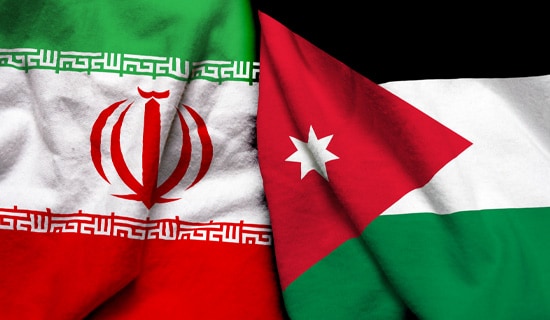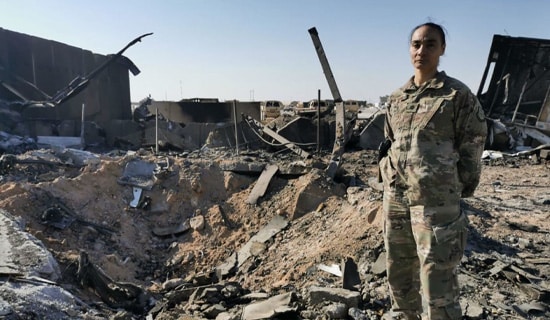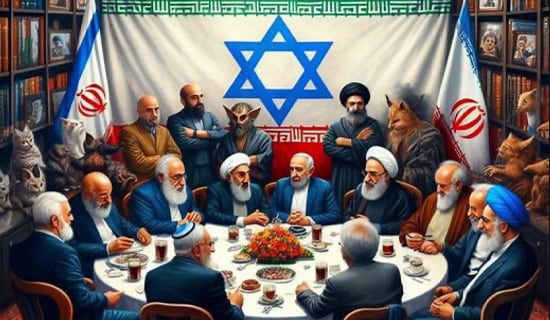In early November 2009, following several years of fighting between the Houthis and the Yemeni government, Saudi Arabia launched a military offensive against Houthis rebels in northern Yemen in retaliation for their infiltration of its territory. In the course of this offensive, Saudi Arabia took some controversial measures which received little attention in the press or among the public in the region and internationally. By its own admission, Saudi Arabia operated against the Houthis in international waters, including by sinking boats, while the Houthis and their supporters reported Saudi airstrikes inside Yemen's territory, including by means of phosphorus bombs.
It should be noted that the Saudis regarded the offensive as a watershed, and as an opportunity to resolve the problems on the Yemeni border once and for all by stemming the influx of terrorists, smugglers, and African illegal immigrants who infiltrate the country via this border. To this end, the Saudis took steps to turn the border province of Jazan into a security zone by evacuating Saudi citizens and leveling entire areas. Fighting between the Saudi military and the Houthis ceased on February 11, 2010, when the Houthis unilaterally declared a cease-fire.
Following are reports on the offensive, both by the Saudis and by the Houthis and their supporters.
Reports by Saudi Sources
Sinking of Boats
Throughout the offensive against the Houthis, the Saudi press reported on the Saudi military operations, including the killing of fighters, the sinking of boats, military activity in international waters, and the evacuation of Saudi citizens and clearing of areas along the Yemeni border. For example, the London daily Al-Hayat reported that on November 16, 2009, a Saudi force bombed two boats that had entered Saudi territorial waters off the Jazan coast, forcing the armed gunmen inside them to surrender and turn themselves in.[1] The London daily Al-Sharq Al-Awsat reported, citing a Saudi military source, that a Saudi helicopter had sunk two boats that approached the Saudi coast, apparently from the direction of Somalia, and did not respond to orders to halt.[2]
Military Activity in International Waters
A former Saudi navy officer, 'Amru Al-'Amiri, wrote in the Saudi daily Okaz, "Some of our naval forces, which are part of our armed forces, are currently deployed in our southern waters and [also] in international waters. They surround and arrest infiltrators and anyone who might be assisting them – and all this in international waters."[3]
Expanding the Military Operation Zone
On November 20, 2009, the Saudi liberal website www.elaph.com reported that the Saudi military had evacuated villages along the Yemeni border in order to prevent their inhabitants from being harmed during the fighting, and had leveled areas following reports that Houthi infiltrators were hiding in evacuated buildings. On December 12, the website reported that the Saudi military had expanded its deployment in the mountainous border region, and incorporated additional villages into the security zone with the intention of leveling them, having already expelled the Houthis from these areas."[4]
Killing Infiltrators on Saudi Soil
The Saudi deputy defense and aviation minister, Prince Khaled bin Sultan bin 'Abd Al-'Aziz, told the Saudi TV channel Al-Arabiya that the Saudi military had killed hundreds of Houthi fighters on Saudi soil after they refused to leave their positions near the Yemen border.[5]
Reports by Houthis and Their Supporters
Airstrikes in Yemen, Killing of Civilians
During the fighting, the Houthi website Al-Minbar reported on Saudi operations against Houthi fighters and Yemeni civilians, including airstrikes within Yemeni territory that resulted in the death of non-combatants. For example, the website reported that on November 30, 2009, Saudi jets bombed targets in the region of Madhab in Sa'da province, killing seven civilians. The site described this as "a cruel massacre of women and children who are innocent Yemeni civilians… in a region very far away from the fighting zones... using planes and every type of forbidden heavy weapon."[6] According to a December 13 report, 70 civilians were killed and 100 were wounded in a market in the town of Razah after Saudi fighter jets attacked the town more than 50 times.[7] Alongside the written reports, the website also posted videos showing the aftermath of the strikes: buildings in ruin and bodies of civilians strewn among the rubble.[8]
Use of Phosphorus Bombs
According to the Houthis, the Saudi military also used phosphorus bombs against them. On November 10, 2009, the Qatari website al-Jazeera.net reported, citing Muhammad 'Abd Al-Salam, spokesman of the Houthi rebels' leader 'Abd Al-Malik Al-Houthi, that Saudi fighter jets had dropped phosphorus bombs on Houthi bases in the Al-Malahiz area, seven kilometers into Yemeni territory. An advisor to the Saudi government denied this claim, saying that the Saudi military only used flares and that it does not operate beyond the border.[9]
Houthi Leader: Targeting Civilians – Part of the Saudi Strategy
Houthi leader 'Abd Al-Malik Al-Houthi said that the Saudi army was targeting both militants and civilians. In a recorded speech posted December 31, 2009 on the Al-Minbar website, he condemned the Saudi, U.S. and Yemeni airstrikes in Yemen, calling them "war crimes and mass killings of civilians." He added, "The enemies have turned the harming of civilians into a basic strategy, which they employ in attempt to pressure us."[10] In an interview for the Lebanese daily Al-Akhbar, he explained that the Houthis were fighting the Saudi military because it was waging "a war on land, in the sea and in the air, violating Yemeni sovereignty, and trying to invade [Yemeni] territory and penetrate dozens of kilometers into [this country] in order to create what [the Saudis] call a 'buffer zone.'"[11]
SUPPORT OUR WORK

Iranian TV Shows "Torture of Houthi Hostages"
On February 6, 2010, the Iranian channel Press TV aired a video allegedly showing Saudi soldiers whipping bound Yemeni civilians suspected of affiliation with the Houthi rebels. The video was also posted on YouTube.[12]
Saudi Arabia Evacuates Civilians to Create Security Zone
As mentioned, the need to wage an effective campaign against the Houthis has compelled the Saudis to evacuate thousands of citizens from the regions along the Yemeni border. It seems that the evacuation, which was hastily carried out at the height of the fighting, is not meant to be temporary, and that some of the border regions are to remain empty of residents. This is apparent from King Abdallah's urgent order to build refugee centers for the evacuees in Jazan province, with tens of thousands of housing units, and services such as mosques, clinics and schools.[13] Prince Fahd bin Sultan bin 'Abd Al-'Aziz, governor of Tabuk province, has enlisted in this cause, and has instructed the social organizations in Jazan to help with the construction of the refugee centers.[14]
The developments rekindled the debate in Saudi Arabia about the issue of the border with Yemen, which was demarcated in the 2000 Jeddah Treaty between the two countries. In 2003, Saudi Arabia started to build a security barrier along this border, to Yemen's consternation. The construction of the barrier led to clashes with tribes on the Yemeni side of the border, who claimed that it violated their human rights by separating them from their lands and undermining their tribal unity.[15]
Saudi Prince Sa'ud bin Mansour calls on Yemenis to Support Construction of Security Barrier
In a December 7, 2009 article in the Saudi daily Al-Watan, Prince Sa'ud bin Mansour called on the Yemeni president to support the construction of the barrier: "...Returning to the issue of the Great Yemeni Barrier, in 2003 the [Saudi] Supreme Headquarters submitted a report on this border barrier and on its [potential] benefits, and after a while the matter was said to be under examination... [but] since then we have heard nothing about it. From this media platform, and as a Saudi citizen who has every respect for Yemen and its culture, I address the brave Yemeni commander [i.e. Yemeni President 'Ali 'Abdallah Salih], who has nothing but love for [the Saudi] kingdom, just as the leaders [of this kingdom] have nothing but love for him, and say to him: 'Honorable President and dear brother, I [ask only] for your moral cooperation and support for our kingdom in [implementing] this project, which will benefit both our countries [and create] an alternative to the chaos we are experiencing. [This chaos] will not end, except by leaving the army on the border at all times, which is not realistic, or else by building the Great Yemeni Barrier, which is the dream of every Yemeni and Saudi citizen, [for] it will [bring us] lives of prosperity and security.[16]
Saudi Columnist Fares bin Hazzam: The Evacuees Will Not Return to Their Homes
Fares bin Hazzam, a columnist for the Saudi daily Al-Riyadh, assessed that the citizens evacuated from the border region would not be allowed to return, and that the Saudi authorities would continue the evacuations, in order to create an empty security zone where the border guards can operate freely: "So far, a wide area along the border has been evacuated, and the only ones present there [now] are the military forces, which will not stay [there] long... The goal of their presence there in the last three weeks has begun to be realized: They have evacuated the villages of their inhabitants, expelled the [Houthi] fighters [from the area], and purged it of hidden weapons. The dozens of hamlets that were strewn haphazardly along the border will not be [rebuilt], for these impermanent settlements, which had spilled over the border into Yemen, prevented the special security forces... from exerting full control over the border strip – and that was the main factor that made it so easy for infiltrators to cross [the border]...
"The fate of the thousands of villagers [who lived] along the border is becoming clear: they will never return to their former [homes]. These poverty-stricken villages, bereft of the most rudimentary [signs] of development, will be eliminated, and the area will be cleared and turned into an empty zone, as an impediment to the activity of the infiltrators and smugglers. The fate of the villagers exiled from their homes is not difficult to predict: The refugee camps are a temporary [solution] and should not be allowed to exist for more than a month. [After that,] responsibility must be taken to arrange suitable temporarily housing [for the evacuees] in the cities of Jazan province, until modern settlements can be built for them – for these citizens deserve to receive much [assistance] from their homeland... Right now, the goal is to evacuate a swathe [several] kilometers [wide] in Saudi Arabia, and leave it as a zone for the activity of the border guards."[17]
Saudi Columnist Hashem 'Abdu Hashem Calls to Develop, Rehabilitate Border Regions
In a series of articles in the daily Al-Riyadh, columnist Hashem 'Abdu Hashem recommended to establish a state authority in charge of formulating and implementing a comprehensive strategy for securing and developing Saudi Arabia's border regions: "I call to establish a new and efficient government body, under the direct authority of [the King], that will undertake the broad national task of ensuring the country's security on its southern, northern and eastern borders, and will promote the development of these regions and their inhabitants... so they will be a source of power for the homeland as a whole, instead of [portals for] infiltrators, smugglers, terrorists and criminals, and convenient corridors for the passage of dangerous plots..." In another article, 'Abdu Hashem called for "high-level planning and tight military and security monitoring of the border regions, which span large areas, for we are facing a massive influx of infiltrators from Sudan, Eritrea, Djibouti, Somalia, and Yemen, which expose the regions and their inhabitants to great dangers."
Unlike bin Hazzam, 'Abdu Hashem was against evacuating Saudi citizens from the border regions. Instead, he recommended to treat these regions as war zones, equip them with bomb shelters and invest efforts in their rehabilitation and development. Summing up his proposal, he said: "In brief, what I propose is to militarize the [border] region, not only by increasing military and combat efficiency there, but by imbuing the residents with a spirit of fighting and struggle. The time is past when [we could be] lazy, as though we were living in Switzerland..."[18]
It should be noted that in early March 2010, a few weeks after the cessation of hostilities between Saudi Arabia and the Houthis, the deputy defense and aviation minister, Prince Khaled bin Sultan, clarified that no changes had been made on either side of the Yemeni-Saudi border, but threatened harsh retaliation in the case of futher infiltration by armed militants.[19]
*L. Barkan is a Research Fellow at MEMRI.
[1] Al-Hayat (London), November 18, 2009.
[2] Al-Sharq Al-Awsat (London), November 19, 2009.
[3] 'Okaz (Saudi Arabia), December 6, 2009.
[4] www.elaph.com, November 20, December 12, 2009.
[5] www.alarabiya.net, January 12, 2010.
[6] www.almenpar.org, November 30, 2009.
[7] www.almenpar.org, December 13, 2009.
[8] See for example http://www.almenpar.org/news.php?action=view&id=1979, January 2, 2010.
[9] www.aljazeera.net, November 10, 2009.
[10] www.almenpar.org, December 31, 2009.
[11] Al-Akhbar (Lebanon), January 5, 2010.
[13] Al-Watan (Saudi Arabia), December 3, 2009.
[14] Al-Sharq Al-Awsat (London), November 19, 2009.
[15] See MEMRI Inquiry and Analysis No. 162,"The Saudi Separation Fence," February 13, 2004, The Saudi Separation Fence.
[16] Al-Watan (Saudi Arabia), December 7, 2009.
[17] Al-Riyadh (Saudi Arabia), November 24, 2009.
[18] Al-Riyadh (Saudi Arabia), November 28, November 30, December 2, December 7, 2009.
[19] Al-Hayat (London), March 7, 2010.




